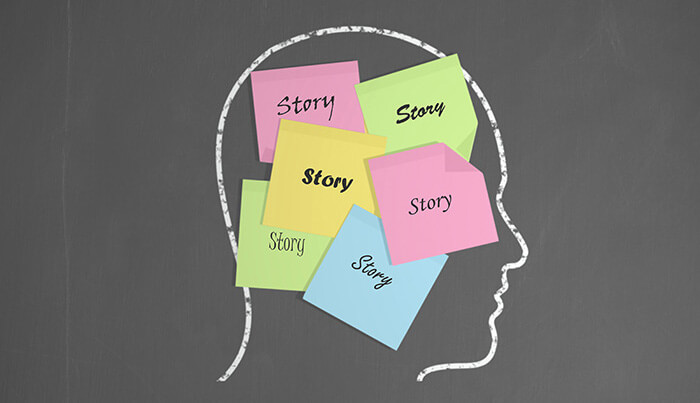“There are a dozen things competing for your audience’s attention, and they have only so much to give. Appeal to them only on a logical basis, and most likely, you will have no appeal at all. They may listen, but they won’t hear. Your greatest competition is not your competition. It’s indifference.” –Harry Beckwith, Selling the Invisible
If you want to persuade or inspire any audience—the prospect, the client, the CEO—you need to craft a message that will resonate.
So what makes a message memorable? Do stories matter, or is it simply the hard facts or the passionate, engaging delivery that audiences recall?
Researchers at Stanford University addressed this question. They analyzed the difference between speakers who infused their messages with stories versus speakers who simply relied on hard data, fact-heavy presentations. The question the researchers were attempting to answer: what makes a message sticky and memorable long after the speaker has finished talking?
In a series of classroom tests, one group of speakers used only facts, graphs and statistics to persuade the audience. The other group conveyed the same ideas, but rather than conveying the information with a fact heavy presentation, they relied primarily on a simple story. The researchers then tested the audience recall and what they found has meaning for every speaker in the business arena.
When the audience was asked to recall the details of the presentations, 63% remembered the story. Only 5% remembered the data-only presentations.
The power of stories in pitching, presenting and selling your ideas in the business arena is indisputable.
In his provocative book, Tell to Win: Connect, Persuade, and Triumph with the Hidden Power of Story, former chairman of Sony Pictures and current CEO of Mandalay Entertainment Group, Peter Guber, writes that “powerful storytelling can be the ultimate tool to get the meeting, engage the listener, and close the deal.”
And in their insightful work, Made to Stick: Why Some Ideas Survive and Others Die, professors Chip and Dan Heath explain the power of stories this way: “Business speakers seem to believe that once they have clicked through a PowerPoint presentation showcasing their conclusions, they have successfully communicated their ideas. What they have done is share data. . . . They are often surprised to find that nothing they said had impact. They haven’t created ideas that are useful or lasting. Nothing stuck.”
So where do you find your stories? Anywhere and everywhere. A good story doesn’t have to be earth-shattering (overcoming a life-threatening illness, completing the Iron Man Triathlon, meeting the Pope) to be worth capturing. It only has to potentially be useful. Does the idea/story/example cause you to pause, smile, or to think? Does it touch you, inspire you, or persuade you? If it works for you, most likely it will work for any audience.
To begin to build your story file, start exploring the answers to the questions below. I have a mind like a slotted spoon, so I need to capture any useful story nuggets immediately, or POOF—those inspirations are gone. So use whatever system works best for you to hoard those prospective stories (a journal, shoeboxes, scribbled in ink on your hand, etc.).
- What are the best lessons you have learned in your professional career?
- What are the best lessons your mentors, your children, your pets taught you?
- Who were your favorite teachers and why?
- What has sports taught you about business?
- What do you think the essential characteristics of leaders are . . . ?
- What is your favorite pastime, and why?
- A leader is ?
- A winner is ?
- What have you learned from your personal and/or professional setbacks?
- What have you learned from your successes?
- What have your customers taught you?
- The best piece of advice I ever received was .
- My favorite quote is because .
A well-crafted story engages, explains, and inspires. But most importantly: stories make messages memorable.
I will leave you with a passage on the power of stories from my most recent executive presentation skills book, Present Your Way to the Top (McGraw-Hill New York):
“We always hope that our listeners will cling to our words and recall them forever, but typically they don’t. Most audiences forget most of what speakers say—quickly. It’s disheartening, but true. If your listeners remember what you said even a week after your speech, you are ahead of most speakers. But your listeners seldom forget a story that moves, surprises, or enchant them. Do you want your messages to be remembered? Then forget what you learned in grade school—go ahead and tell stories.”





